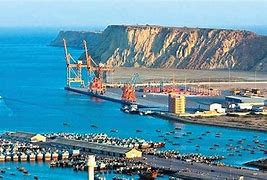About the author:
Gao Jiawei, a reporter and commentator with CGTN Radio based in Beijing, focusing on international trade and China’s foreign policy.
——————————–
Amidst profound global changes, the success of this year’s APEC summit hinges on whether its member economies can effectively champion genuine multilateralism.
Since its establishment in 1989, APEC has grown into the most significant economic cooperation organization in the Asia-Pacific region. Under APEC’s leadership, the Asia-Pacific has become a global economic powerhouse. With 21 member economies, APEC accounts for 40% of the world’s population, contributes 60% of global economic output, and represents nearly half of global trade. This positions APEC as the most comprehensive and influential economic cooperation mechanism in the Asia-Pacific region.
Multilateralism stands as one of APEC’s core principles
Fostering cooperation based on unity in diversity is a cherished tradition and a proven success throughout APEC’s history.
APEC comprises 21 economies spanning Asia, Oceania, North America, South America, and Europe, with distinct political systems, varying levels of development, and diverse historical and cultural traditions. It includes both developed “northern” and emerging “southern” economies, and featuring permanent members of the UN Security Council, influential regional powers, as well as smaller countries and regions.
The intricate diversity among its members forms the foundation of APEC and serves as the primary consideration for the development of its various initiatives. In light of this diversity, APEC members have developed and followed the “APEC approach,” marked by flexibility, mutual benefit, consensus through consultation, and voluntary participation. This non-regulatory stance fosters continuous regional cooperation and reaps numerous benefits. From 2000 to 2018, APEC economies experienced an 8.5% decline in average trade costs, demonstrating strong resilience even amid the pandemic. The IMF predicts that economic growth of the Asia-Pacific region will rise from 3.9% in 2022 to 4.6% in 2023, contributing around 70% to global growth.
APEC’s accomplishments are a testament to its members’ commitment to multilateralism, serving as a good example for both South-South and North-South cooperation.
Multilateralism isn’t about forming exclusive, closed-off circles or creating “small courtyard with high walls”
Consensus on commitment to multilateralism is not always there. The extensive and intricate composition of APEC economies, within the context of geopolitical dynamics, also provides space for manipulation of power.
As the host of this year’s APEC Summit, the United States has made a series of notable moves in the lead-up to the summit. Firstly, it vigorously promoted its “Indo-Pacific” strategy, reaching out to allies such as India, Japan, and Australia, in an attempt to reshape the order in the Asia-Pacific region.
In terms of its attitude towards China, despite recent frequent exchanges of visits between Chinese and U.S. political leaders, the United States has continued its tech assaults against China to prevent the country’s technological progress.
But who is the real victim? The recent export restrictions on graphic processing units caused a significant drop in Nvidia’s stock price, with a decline exceeding 5.5%, marking the largest drop since May. Statistics show that around 16% of the revenue of information technology firms in the U.S. S&P 500 is derived from China. In the case of semiconductor companies like Nvidia, China accounts for 27% of their revenue. Nvidia’s Chief Financial Officer Colette Kress has emphasized that further restrictions on sales to China could potentially undermine the competitiveness and leadership of American industries in one of the world’s largest markets.
In response to the negative impact of “decoupling,” influential figures from the United States, such as Bill Gates, Tim Cook, Elon Musk, and Governor Gavin Newsom, have continued their interactions with China this year.
I would not say trade is more important than politics, but despite all those divisions, people’s willingness to boost multilateral trade is consistent—if not stronger. Their advocacy for cooperation may provide reference for the US to consider at the APEC summit.
Multilateralism needs to take the center stage in a multipolar world with pressing challenges
The world is rapidly evolving into a multipolar landscape, and the era where one or two major powers dominate will never come back. The balance of global economic power is undergoing a historic shift, with global economic center moving from the Atlantic to the Pacific. According to IMF statistics, the share of Western Europe and North America in global GDP decreased from 58.5% in 1980 to 46.1% in 2020, while the share of Asia and North America increased from 48.1% to 62.1%.
Multilateralism is a response to the demands of a multipolar world. Its core principle is that international matters should be discussed collectively, and that the future of the world is a shared responsibility among nations. In today’s world with its numerous pressing global issues, this approach is more relevant than ever.
Looking around, the Russia-Ukraine conflict still lingers, and the Israeli-Palestinian conflict has only exacerbated the challenges to global peace and development. Climate change continues to wreak havoc, and the ongoing discharge of radioactive water from the Fukushima nuclear plant further disrupts the marine ecosystem. Not to mention the escalating humanitarian crises resulting from wars and natural disasters, along with the sluggish global economic recovery……
As grave as our challenges are, it is urgent for APEC members to unite and cooperate—out of necessity if nothing else—to carry out practical plans boosting growth and sustainable development on the one hand, and to forge non-aligned middle powers bridging conflicts.
Driven by the shared goal of peace and development, APEC has succeeded in reaching where it is today. Past lessons and current risks highlight the need for all APEC members to embrace the trend of multipolarity and infuse global development with vitality through genuine multilateralism.
















